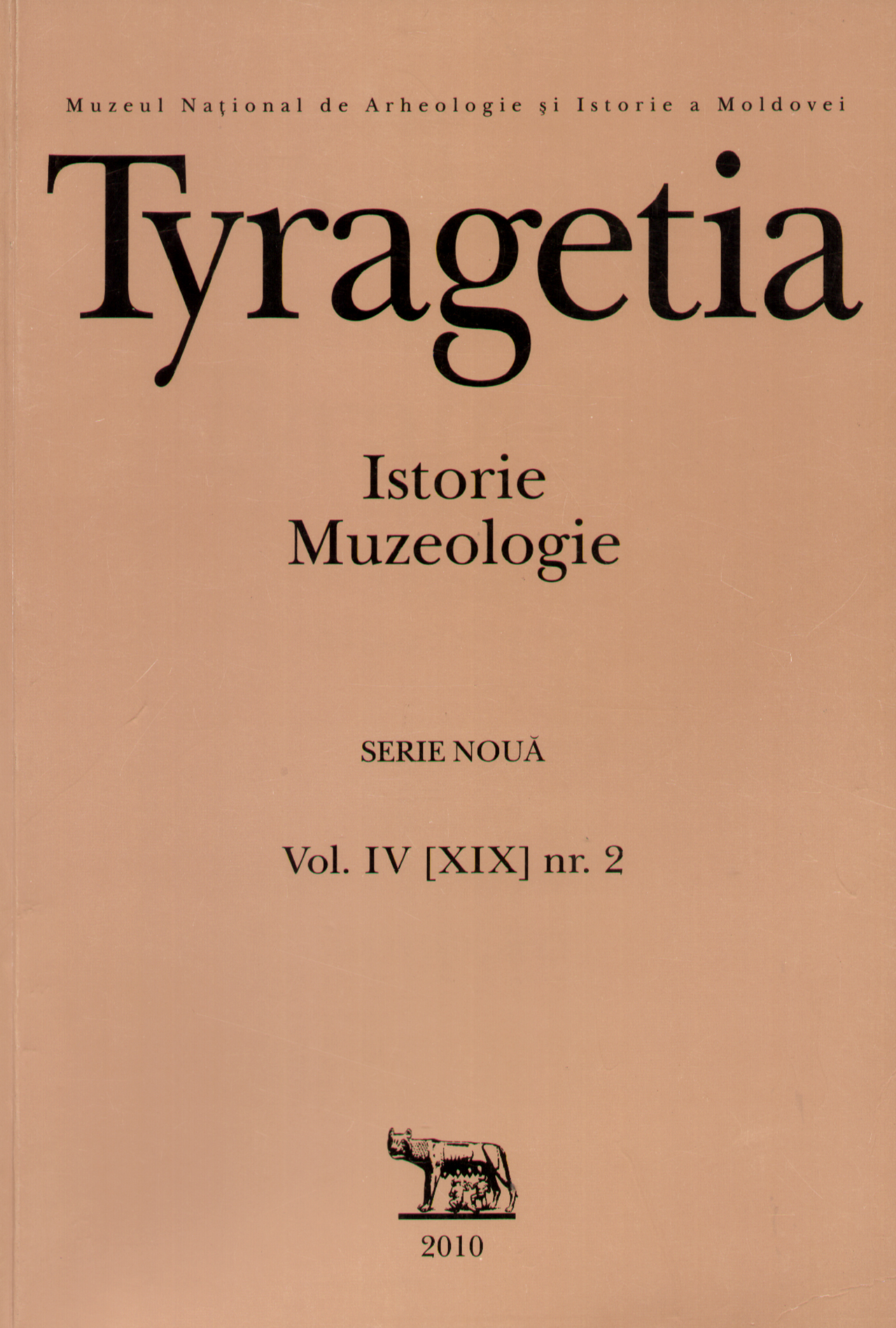Activitatea lui Constantin F. Cazimir în Zemstva basarabeană
Constantin F. Cazimir’s activity within the Bessarabian zemstva
Author(s): Ana GriţcoSubject(s): History
Published by: Muzeul Naţional de Istorie a Moldovei
Keywords: Bessarabia; zemstva; C.F. Cazimir
Summary/Abstract: Bessarabian zemstva; Constantin F. Cazimir; education; medicine, agricultureThe article comes to fill in a page from the life and activity of C.F. Cazimir (1860-1910) – remarkable personality from the history of Bessarabia from the end of 19th century-beginning of 20th century, important patron of culture, man of bright intelligence, landowner and good householder. We attempt at elucidating, based on historical documents (the meetings of the zemstva’s Assembly) stored in the heritage of the National Museum of Archaeology and History of Moldova, his activity within the zemstva – a body of local administration, introduced in Bessarabia in 1869.C.F. Cazimir worked for more than two decades in the provincial and county zemstva (Hotin and Bălţi), where he affirmed himself as a great promoter of education, medicine and agriculture. The catastrophic situation from Bessarabia (more than 50% from the number of boys and over 80% of girls were illiterate) could not be tolerated any more, the indifference of the clerks was overwhelming, made of this subject a constant in zemstva’s working agenda. At the meeting of Zemstva’s assembly, C.F. Cazimir had brought strong critics to its incapacity of solving the problem, especially, the decision to “bandy” the primary education to the county zemstva. He pleaded for well trained teachers and equipped schools where would study as many as possible children. He supported the idea of school libraries with a collection of books “to the benefit of pupils and teachers”, himself being the founder of the library from village Văscăuţi.Being a good specialist, C.F. Cazimir manifested a special interest for the agrarian schools where, along his personal investigations in the field, he had raisin this problem at the public institutions as well. He was the tutor of the agrarian school from Grinăuţi who became a forgery of personnel for agriculture. He had proven his civic attitude in medicine also. Besides the hundreds of scholarships granted, as adviser, to the future medical specialists, he was an adept of an active policy of combating epidemics. He had criticized the hygienic conditions from the psychiatric hospital from Costujeni, institution which enjoyed the most consistent subsidy from the provincial administration.He was elected in 1901 a member of the commission for the construction of the driveway Chişinău-Criuleni, along with the mayor of Chişinău, K. Schmidt, advisers I. Sârbu, V. Varzari and engineer M. Şostovski.
Journal: Tyragetia (Serie Nouă)
- Issue Year: IV/2010
- Issue No: 2
- Page Range: 245-250
- Page Count: 6
- Language: Romanian

